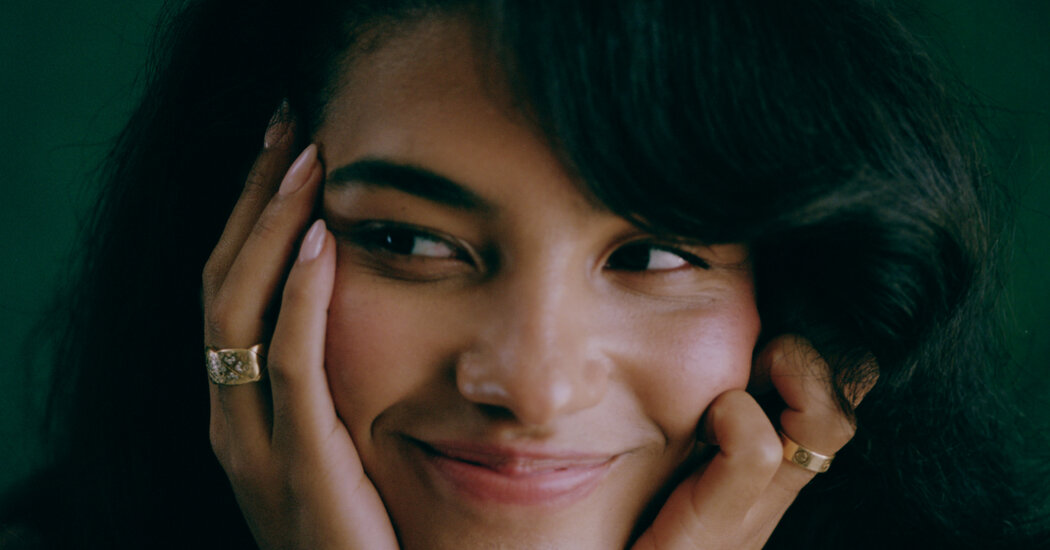When it came time for Olivia Dean to make her second album — a follow-up to her Mercury Prize-nominated 2023 neo-soul debut, “Messy” — she felt pressure to prove she could “do it again,” she said recently.
So Dean, a 26-year-old British singer and incisive lyricist, did what the moment seemed to demand: renting time in a “really big, sexy studio” in Los Angeles to work with new producers — “because you can, and they want to work with you now,” she said.
But it didn’t feel right.
She wanted the new album to be a “case study, essentially, on love” after a recent heartbreak, she said, but recalled thinking, “I’m so anxious that I’m not even able to hear myself.”
Determined not to compromise her vision for the record, Dean decided to create a studio space where she could get vulnerable. In March, she rented an open-plan house with huge windows in East London, near where she grew up, and brought her piano from home. For eight weeks, she and many of the producers and musicians she has been working with over the last decade made an album.
The house became one of their most important production tools, according to Zach Nahome, who executive produced the album. Dean sometimes slept there, and the group’s meandering, late-night conversations over red wine inspired the lyrics for the record, called “The Art of Loving.”
The album is an intimate, polished, 12-track meditation on romantic, platonic and self-love — also inspired by bell hooks’s perennial reference text “All About Love: New Visions” — and was released on Capitol Records at the end of last month.
If its sound is poppier than its predecessor, that’s intentional. With this album, Dean said she “really wanted to reach people.”
She certainly has. From Sunday, Dean will be the support act for Sabrina Carpenter’s five nights at Madison Square Garden, and will headline six sold-out nights at the O2 arena in London next year. “The Art of Loving” shot to the top of the album chart in Britain this month, and its shimmering single “Man I Need” hit No. 1 there, the biggest opening week for a British female artist since Adele’s “30” in 2021.
In the United States, both the album and single have climbed the Billboard charts. In many corners of TikTok and Instagram in recent weeks, Dean’s tracks — including winking lyrics like “I’m the perfect mix of / Saturday night and the rest / of your life” — have seemed like the apps’ unofficial soundtrack. Burberry recently made Dean the face of its Her fragrance line.
“This is what it felt like to be around Sam Smith 12 years ago,” said Jo Charrington, the president of Capitol Records U.K., who signed Smith and has worked with Dean for several years.
For Dean, it has felt like “all of a sudden, everybody’s looking at me,” she said with an infectious laugh. “I’m like, guys,” she said, widening her eyes in mock disbelief and pretending to hide behind a burgundy-manicured hand. “It’s amazing, but it’s also so, so funny.” (She recently came off TikTok, she said, after feeling like she was “always listening to a conversation that people are having about me.”)
This has all been especially weird, Dean said, because she had felt “on the outside of it all for such a long time.”
She has been releasing music since she was 19, pairing lyrics that she said tried to find “the most romance in little things” with a sound aimed at evoking feeling, rather than adhering to musical genres. This has led her to blend R&B, pop-soul and Motown influences with nods to jazz and the occasional steel drum. That diversity of sound is one reason “there’s been lots of hurdles” getting to this point, Dean said: “Making the first album was really hard. Nobody really got it.”
Emily Braham, who has been Dean’s manager since the artist was 17, said that people in the music industry could have “shortsighted and lazy” assumptions that a “mixed-race girl with a guitar” should sound like Corinne Bailey Rae.
“Despite the industry always telling you that you have to be a certain type of person,” Braham said, Dean has been “really defiant about how she wants to do things.” (In 2020, when the pandemic canceled the first summer festivals that Dean had booked, she and her team played impromptu gigs from a yellow van around a British campsite and outdoor pool.)
Dean partly attributes both her determination and her broad musical knowledge to her upbringing. Her mother, who has Jamaican and Guyanese heritage, was the first Black woman to become deputy leader of a British political party — the feminist Women’s Equality Party — and Dean said she grew up believing that anything she wanted to do was possible.
At home, she recalled, her mother would play music by “powerful women telling stories” like Lauryn Hill (from whom Dean gets her middle name), Jill Scott and Angie Stone. Her British father favored Al Green, Steely Dan and reggae tracks.
After deciding at the age of 8 that she wanted to be a singer, Dean went to singing lessons and was part of a gospel choir. From 15, she attended the highly selective BRIT School, a London performing arts incubator whose alumni include Adele and Amy Winehouse.
Conor Doherty, who taught Dean at the school and is the head of its music department, said that the BRIT instilled the lesson that “you need to be incredibly hard working” to make it in the music industry — which the teenage Dean already was.
She was originally in the school’s musical theater program, and then switched to the music track, where she arrived “knowing how to work a stage and work an audience,” Doherty said.
Today, Dean commands in performance with fluidly elegant movement reminiscent of the Supremes, backed by her band and often wearing a slinky gown, long hair blowing in a fan’s breeze. “When you’re on the stage, what you say is very powerful,” Dean said, and crowds tend to sing certain lyrics back to her with roof-raising gusto, including “I don’t want a boyfriend!” a line from her song “Nice to Each Other.”
Dean added that “the process of making this album, and just leaning into vulnerability,” followed by “it coming out, and it being understood, and people connecting to that” had made her feel “like “a different person.”
There was a time when Dean could feel “quite negatively” about “being a mix of things,” she said, both in terms of her mixed-race identity and her exuberant sound. But now, she said with another playful laugh, her mind-set is: “I’m the best of so many different things.”
The post Olivia Dean Adds Love to the Mix appeared first on New York Times.




